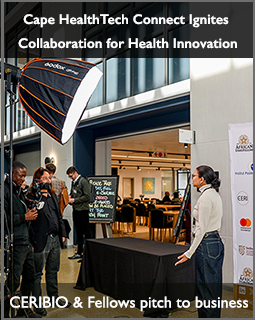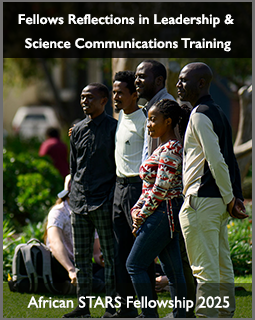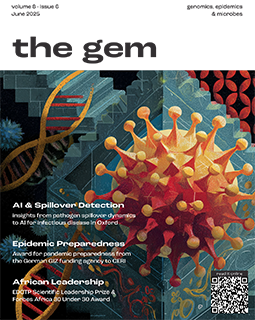As Pandemic Negotiations Move at Snails’ Pace, Scientists Urge Pathogen-Sharing Agreement
As pressure intensifies on World Health Organization (WHO) member states to finalise a pandemic agreement by May, insiders are concerned by the snails’ pace of negotiations – primarily because they believe the negotiators have spent an inordinate amount of time on contentious issues while neglecting more procedural issues.

West Virginia National Guard’s Task Force Chemical, Biological, Radiological and Nuclear (CBRN) Response Enterprise (assist staff, medical personnel, and first responders of an Eastbrook Center nursing home with COVID-19 testing in April 2020.
As pressure intensifies on World Health Organization (WHO) member states to finalise a pandemic agreement by May, insiders are concerned by the snails’ pace of negotiations – primarily because they believe the negotiators have spent an inordinate amount of time on contentious issues while neglecting more procedural issues.
After two years of negotiations, the eighth meeting of the intergovernmental negotiating body’s (INB) entered its seventh day on Tuesday with a number of key discussions still confined to sub-groups rather being presented as text proposals because of disagreements.
A joint meeting between the INB and the Working Group on Amendments to the International Health Regulations (WGIHR) last Friday provided a rare public glimpse into the slow pace of talks.
The WGIHR is updating the IHR, world’s only binding agreement on public health emergencies with pandemic potential, as these were found wanting during COVID-19 – and some of their work overlaps with the INB.
The joint meeting was aimed at ironing out how the overlapping areas would be addressed – yet the Bureaux of both groups ended up withdrawing two of their four process proposals because of lack of agreement.
Some influential outside groups have hosted private meetings with negotiators in an attempt to break the impasse and ensure that the next pandemic is guided by equitable access to vaccines and medicines not the COVID-era vaccine nationalism.
Most recently, the International Peace Institute and the Permanent Mission of Costa Rica in Geneva hosted a retreat for some INB negotiators over the past weekend. But it is too early to tell whether this has resulted in any positive results.
No obligation to ‘right to health’

INB co-chair Precious Matsoso and Pandemic Action Network’s Aggrey Aluso at last week’s civil society hearings.
Meanwhile, voices outside the process have been growing louder with important interventions from civil society and scientists in the past week.
The Pandemic Action Network hosted two short sessions in Geneva last week for civil society to express their views on the draft directly to INB members. Over 100 organisations stepped up to do so – although the first session was marred by a handful of vocal anti-vaxxers opposed to the WHO.
While some civil society organisations used their two-minute slots to lament their exclusion from negotiations, some important interventions were made. These include the draft agreement’s narrow definition of 'vulnerable people', no obligation on countries to ensure citizens’ right to health or human rights monitoring during pandemics, and the potential for national laws to neutralise any pandemic agreement.
Meanwhile, a group of 290 scientists from 36 countries warned that unless a pathogen access and benefit-sharing (PABS) system is agreed on – currently Article 12 – there will be no vaccine equity in the next pandemic.
At this stage, the INB Bureau has been unable to provide text for an updated Article 12 because of disagreements.
Benefits for information-sharing
'Across all fields, scientists from the global north have frequently extracted data and samples from the global south without the permission of the people there, without collaborating meaningfully — if at all — with local scientists, and without providing any benefit to the countries where they conduct their work,' according to to nine key scientists leading the group in a commentary in Nature.
The proposed Pandemic Agreement must ensure that COVID-19 vaccine nationalism is never repeated; 290 scientists call for action https://t.co/zqDMnSL9dx
— nature (@Nature) February 23, 2024
The group recommends that the negotiations 'take lessons' from the 2011 Pandemic Influenza Preparedness (PIP) Framework 'to streamline the sharing of influenza viruses with pandemic potential, as well as vaccines and other benefits'.
'Under the PIP Framework, 14 manufacturers have promised that when the next influenza pandemic starts, they will share up to 10% of the vaccines that they make (around 420 million doses) with the WHO. In exchange, these companies have access to a global network of laboratories and their flu samples. The PIP model shows significant promise, but is so far untested and applies only to influenza.'
The scientists propose that under the proposed PABS system, scientists would share pathogen samples and data. In exchange for access to these, manufacturers of vaccines or therapeutics would give at least 20% of their products to the WHO (half for free, and half at affordable prices).
'If Article 12 is weakened or dismantled, it will be a monumental setback for global health justice – and for the global scientific community,' they warn.
'Although today’s scientific community has embraced the ideals of open data sharing, the world is no closer to a fair system for sharing vaccines and therapeutics. Intellectual property, not benefit-sharing, is the antithesis of open science.'
INB8 ends on Friday afternoon, with the ninth meeting scheduled for 18-29 March. However, a further meeting is likely after this given the slow pace.
Link to Publication in Nature signed by 290 Scientists:
News date: 2024-02-27
Links:
https://healthpolicy-watch.news/pandemic-negotiations-move-at-snails-pace/










